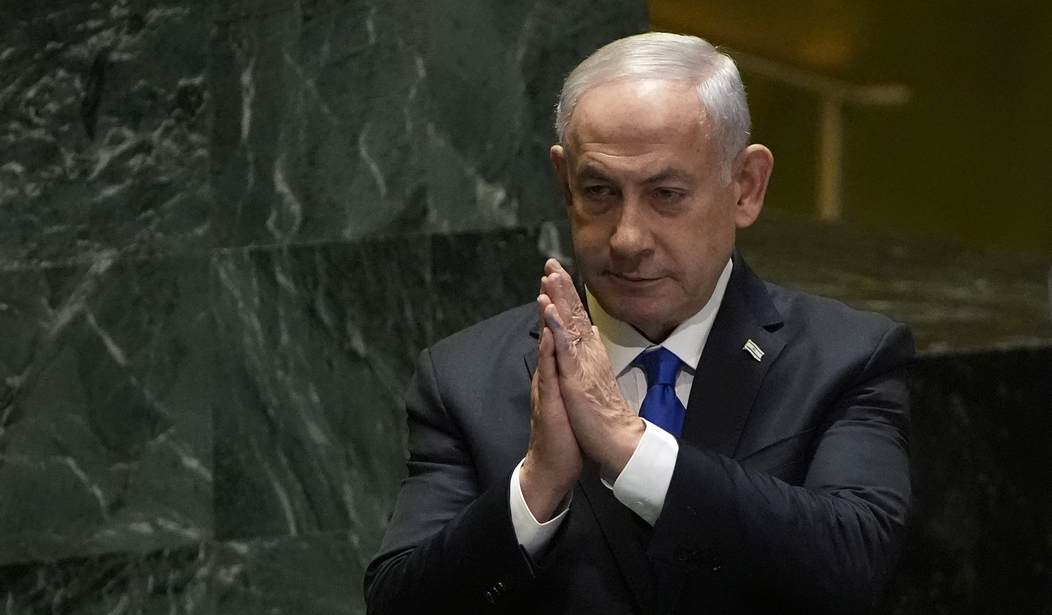In an exclusive report this week, Reuters revealed secret talks between the U.S. and the United Arab Emirates aimed at lifting sanctions on Syria if President Bashar al-Assad "peels himself away from Iran and cuts off weapons routes to Lebanon's Hezbollah."
This was even before Syrian rebels burst out of their enclave in the country's northwest over the weekend, taking Assad's citadel in Aleppo and threatening Hama. Those events might have given the talks some added urgency.
According to Reuters' sources, renewed fighting in the Syrian Civil War "is a signal of precisely the sort of weakness in Assad's alliance with Iran that the Emirati and U.S. initiative aims to exploit. But if Assad embraces Iranian help for a counter-offensive, that could also complicate efforts to drive a wedge between them."
Assad might well be thinking of Tehran, "What have you done for me lately?" The best that Iran's Mullahs' regime could muster in his defense was a few columns of Iraqi Shi'ite militia — many of whom were quickly dispatched to Paradise (courtesy of the U.S. Air Force) long before they got anywhere close to the battlefield.
First and foremost, Assad is a survivor. His means of survival following the eruption of civil war in 2011 was aid from Iran and Russia. In exchange, the parts of Syria still controlled by the Assad regime in Damascus became a virtual vassal state of the other two powers. Syria became Russia's forward operating base in the Mediterranean and Iran's staging area (among other things) for supporting Hezbollah in Lebanon.
It was the smart play; Iran and Russia were the "strong horses," and, besides, the Americans were too tied to the hated Israelis. But those two are looking less like the region's strong horses. President-elect Trump will certainly restore sanctions on Iran, and the whole country sits exposed to the Israeli Air Force after they took out Iran's air defenses in October. The Russian military is almost entirely tied down in Ukraine, and their assistance to Assad has been limited to a few airstrikes. Large amounts of effective aid are likely not forthcoming.
Assad might be smart to take the U.S.-UAE offer to sideline Iran. Of course, the Biden administration has never really understood the concept of second-order effects. Bolstering Assad would weaken Iran but also bolster Russia. As always, in the Middle East, it's complicated.
Or maybe it's too late.
There are rumors — still unconfirmed — that "Unlike Ukrainian President Volodymyr Zelensky, Assad passed on the ammo and 'took the ride' with his family" all the way to Moscow.
But even if Assad is still in Damascus (which I believe), a genuine threat to his regime might not be welcomed in Jerusalem despite the two governments' longstanding disagreements. Not to mention, the occasional war. Syria, in a constant state of civil war, is bad enough. But as a failed state, the whole country would turn into a playground for the region's worst players, including ISIS, which has never quite gone away.
Assad is a predictable (and weak) enemy that Israel knows. The unknown would likely prove worse and could provide impetus for Assad and Netanyahu to cooperate, at least on a limited basis, until the moment of maximum danger has passed.
Ousting Iran from Syria would be a diplomatic coup for the outgoing Biden administration and one I believe they're unlikely to pull off. But if the U.S.-UAE talks can at least be kept on the back burner for another seven weeks or so, maybe it's something President Trump could accomplish — with or without lifting sanctions on the Assad regime.
Recommended: Judge Scarsi Just Gave Hunter Biden the Spanking Joe Should Have
P.S. Thank you once again for your VIP membership. If you're new here or just haven't yet pulled the trigger on exclusive VIP columns, podcasts, video live chats, and movies, you can join now for 50% off during our SAVEAMERICA promotion. Thanks — and don't forget to follow me on X.










Join the conversation as a VIP Member